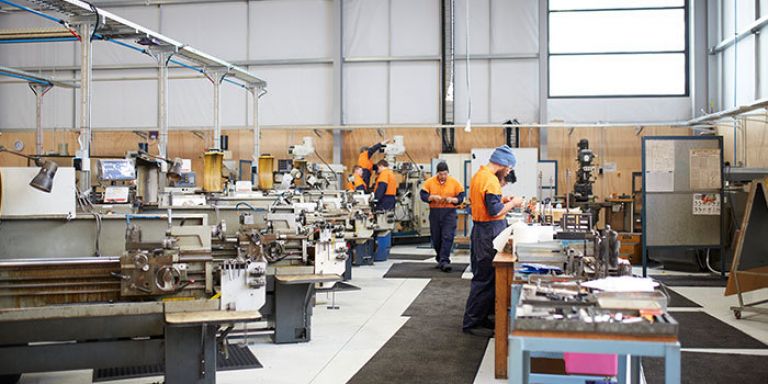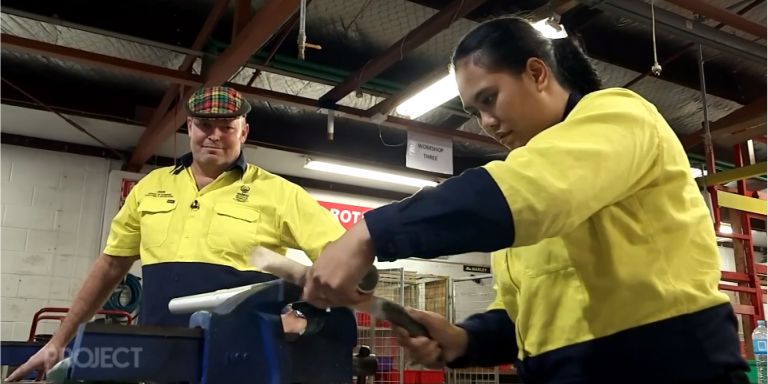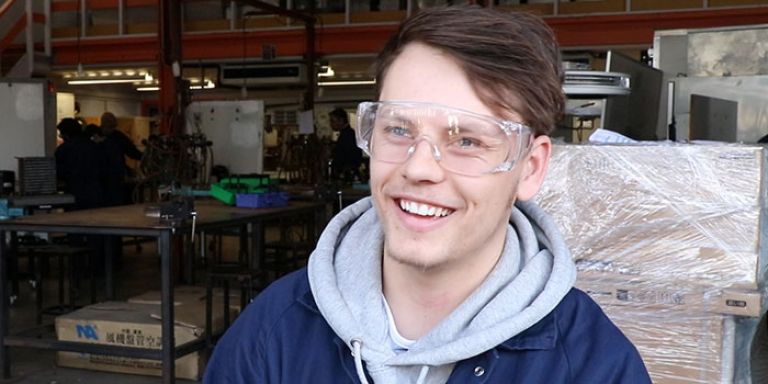Programme highlights
Want to join the diverse and growing engineering industry but not sure which path to take? This comprehensive one-year course will give you a solid head start and teach you a variety of industry-valued skills making you a valuable candidate when looking for an engineering apprenticeship.
This practical course includes core engineering, mechanical and fabrication skills.
You’ll work hands-on with supportive, experienced tutors to develop skills that form the first-year requirements of an engineering apprenticeship.
Aspects of this programme are physically demanding, please talk with an Ask Me! agent if you face fitness or mobility challenges.
This programme is not for those wanting a career in automotive or the vehicle servicing industry. Visit our New Zealand Certificate in Automotive Engineering (Level 3) programme for details on automotive studies.
Please note: A small component of this programme is delivered by a sub-contractor.
You may be required to complete literacy and numeracy assessments as part of this programme.
Entry requirements
Academic entry
- NCEA Level 1 with 10 credits in Numeracy (algebra, trigonometry, measurement recommended), and 10 credits in Literacy
OR
- Be able to demonstrate equivalent knowledge and skills.
English language requirement
For domestic applicants for whom English is not their first language evidence of language competency may be required.
International applicants for whom English is not their first language will be required to show evidence of language competency, issued within the last two years, before being eligible to enrol in any non-English programme. The level of competency required is outlined in Rule 18 and Appendix 2 of the NZQF Programme and Accreditation Rules 2013 and below under the title English Competency.
IELTS General or Academic score of 5 with no band score lower than 5 or completed NZ Certificate in English Language L3 with an endorsement of either General, Workplace or Academic, or meets a relevant English Proficiency Outcome as outlined in Rule 18 and Appendix 2 of the NZQF Programme and Accreditation Rules 2013.
Give yourself credit with Recognition of Prior Learning (RPL)
Did you know you can use the knowledge and experience you already have to your advantage?
Your previous work experience and on-the-job skills, volunteering, professional development, and other providers’ qualifications can be recognised as prior learning, matched against credits in our courses, and put towards your qualification – potentially saving you money and possibly helping you to complete your qualification faster Learn more.
Programme structure
You will need to complete the below eight courses (120 credits):
Do you want to study a single course, without enrolling into the full programme?
Courses within some of our programmes may be offered as an individual Certificate of Proficiency (COP). Programme entry requirements and course fees apply. For more information, please speak to our friendly Ask Me! team.
Further training or study
Graduates of the New Zealand Certificate in Mechanical Engineering (Level 3) programme will be eligible to progress and pathway into industry work-based learning studying the New Zealand qualifications and employment pathways as shown below.
- New Zealand Certificate in Mechanical Engineering (Trade) (Level 4)
- New Zealand Certificate in Engineering Fabrication (Trade) (Level 4)
- New Zealand Certificate in Mechanical Building Services (Trade) (Level 4)
Career opportunities
Graduates of this qualification will be able to work (under limited supervision) in an operator or trade assistant role in their area of specialisation, in the mechanical engineering, construction, mechanical building services, manufacturing, or fabrication industries.
Roles may include: CNC Machine Operator, Mould and Core Maker, Furnace Operator, Machine Operator, Specialist Production Welder, Metal Worker/Fabricator, Ducting Fabricator, Pipe Fitter/Welder, Metal Polisher and Pattern Maker Trade Assistant.
For potential salaries visit careers.govt.nz.
















